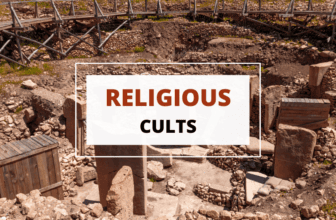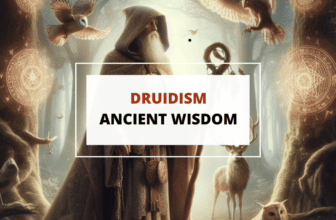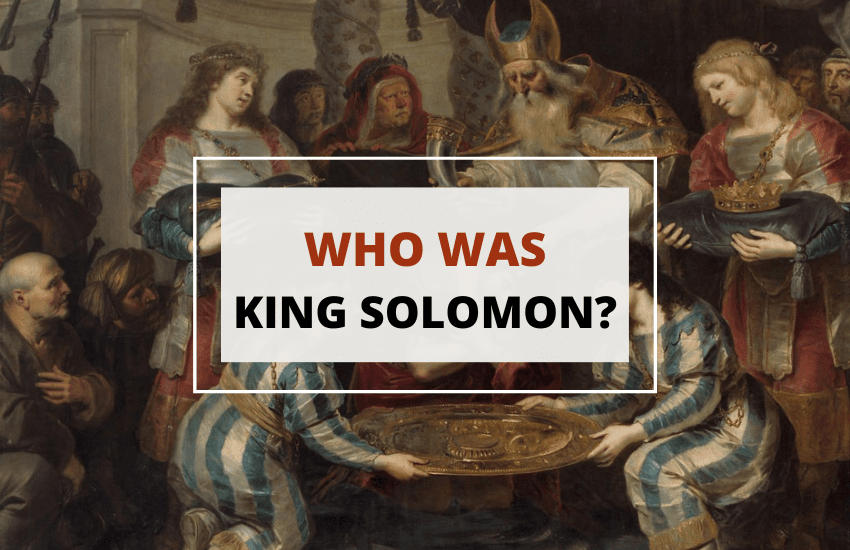
Table of Contents
When the Israelites arrived in the land of Canaan, they settled in separate communities, based on their tribes of origin. It was only around 1050 BCE that the Twelve Tribes of Israel decided to unite under a single monarchy.
The Kingdom of Israel was short-lived, but it left an enduring legacy in the Jewish tradition. Perhaps the most outstanding legacy was that of King Solomon, the last of the first three kings who were responsible for the building of a Temple in Jerusalem.
In this article, we’ll take a closer look at King Solomon, his background, and why he was so important to the people of Israel.
The Three Kings
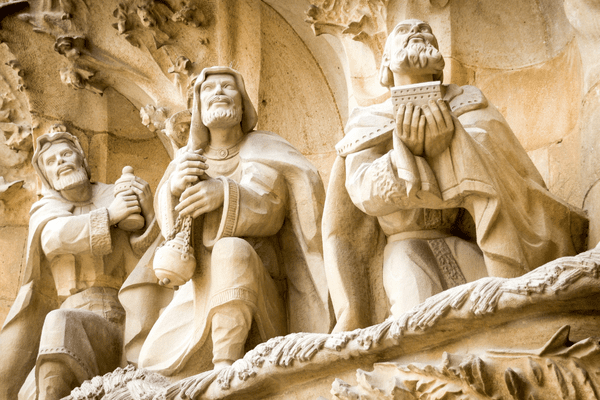
Before the united monarchy, the Israelites did not have any centralized authority, but a series of judges who settled arguments enforced the law and were the leaders of their communities. However, as kingdoms were appearing around them, including Philistine who posed a serious threat to the fragile Israelite communities, they decided to appoint one of their leaders as king.
This was King Saul, the first ruler of unified Israel. The length of Saul’s reign is disputed, going from 2 to 42 years according to the sources, and enjoyed the love of his people and great success in combat. However, he didn’t have a good relationship with God, so he was eventually replaced by David.
David was a shepherd who gained notoriety after killing the giant Goliath with one well-aimed stone. He became the king and a military hero to the Israelites, conquering neighboring areas from the Philistines and Canaanites including the city of Jerusalem. The third king was Solomon, who ruled in the new capital city of Jerusalem during his reign, the Israelites were blessed with enormous economic growth, and mostly in peace.
King Solomon’s Kingdom
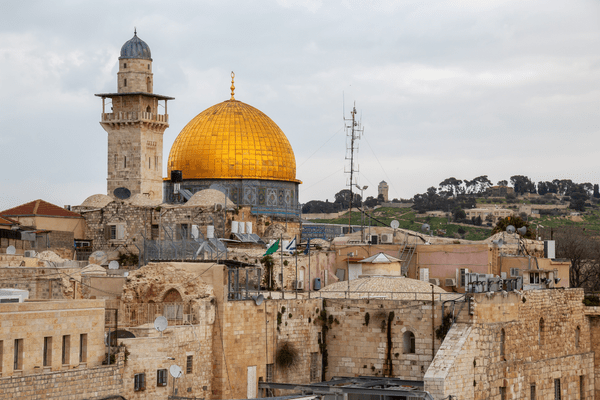
Solomon’s reign is widely considered a golden age for the people of Israel. After the wars of Saul and David, the neighboring peoples respected the Israelites, and a period of peace was achieved.
The nation also boomed economically, thanks in part to the tribute imposed on many communities in the vicinity. Finally, Solomon made trade agreements with Egypt and cemented the relationship with them by marrying the daughter of an unnamed Pharaoh.
King Solomon’s Wisdom
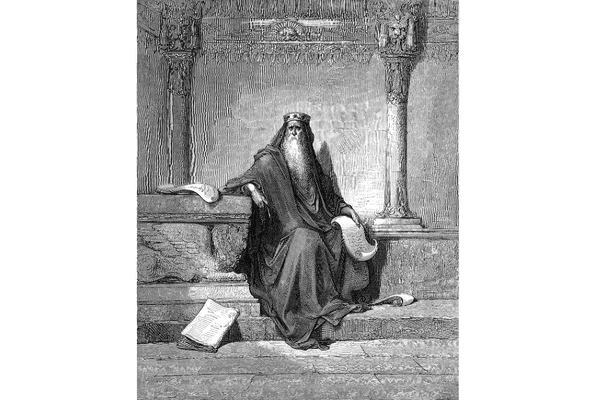
Solomon’s wisdom is proverbial. People not only from Israel but also from neighboring nations would come to his palace seeking his help in resolving difficult conundrums. The most famous anecdote is the one where two women claimed motherhood over a baby.
King Solomon promptly ordered that the baby be cut in half so that each mother would have exactly the same amount of baby. At this point, one of the mothers fell to her knees crying and saying that she would willingly give up the baby to the other woman, and not chop it in half. King Solomon then proclaimed that she was indeed the rightful mother, because to her, her baby’s life was more important than proving the child was hers.
The king made an extremely wise decision and was widely known for his wisdom. He was also a great student of the sacred scriptures and even wrote some of the Bible’s books.
Building the Temple
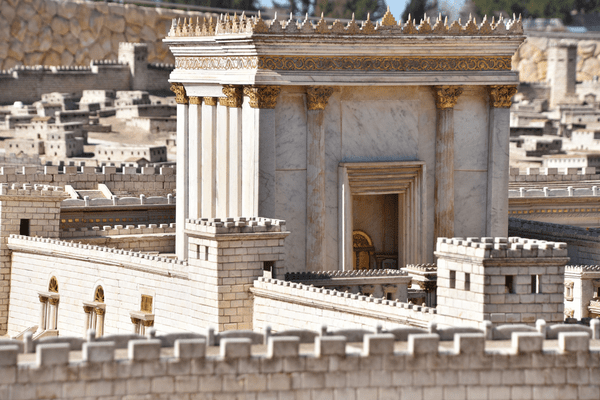
King Solomon’s most important work was the construction of the first Temple in Jerusalem. Once Solomon felt that his kingship was firmly established, he set out to complete the project that David had begun: The building of a House of God in the recently recovered Jerusalem. He had strong, straight cedar trees brought from Tyre by his friend, King Hiram.
Next, a thousand men were sent away to fetch the stones needed from quarries to the north of Israel. Construction on the Temple began in the fourth year of his reign, and most of the materials needed to be imported and assembled on-site because no axes or metal instruments were allowed on the Temple’s site.
The reason was that the Temple was a place of peace, so nothing could be employed at the site of its construction that could also be used in war. The Temple took seven years to complete, and according to eyewitnesses, it was quite a remarkable sight: A magnificent building made of stone, paneled in cedar wood, and covered in gold.
The Seal of Solomon
The Seal of Solomon is the signet ring of King Solomon and is depicted as either a pentagram or hexagram. It’s believed that the ring allowed Solomon to command demons, genies, and spirits, as well as the power to speak to and possibly control animals.
The Queen of Sheba
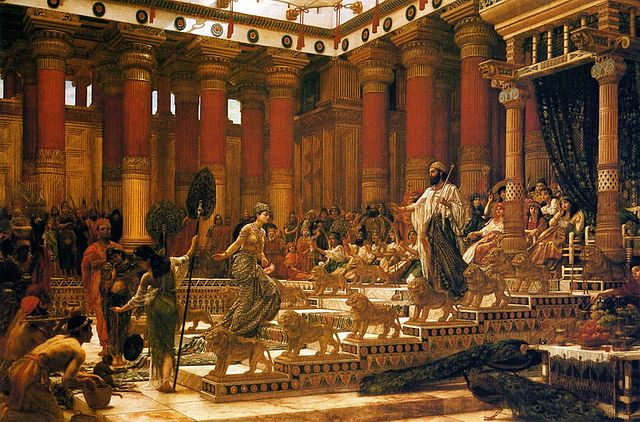
One of the many people impressed by the stories about King Solomon’s wisdom was the Queen of Sheba. She decided to visit the wise king and brought along camels filled to the brim with spices and gold, precious stones, and all kinds of gifts. However, this didn’t mean that she believed all the stories. She had the best minds in her kingdom write riddles for King Solomon to solve.
This way, the Queen of Sheba would have an idea of the extent of his real wisdom. Needless to say, the King exceeded her expectations, and she was utterly impressed. Before returning to her home country, she gave Solomon 120 silver talents, many compliments, and blessings to the Israelite God.
Fall from Grace
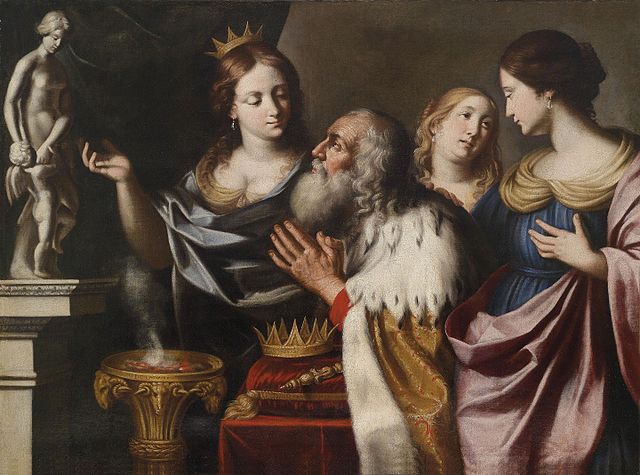
Every man has his Achilles heel. Solomon was said to be a womanizer, with a taste for the exotic. This is why his teacher, Shimei, prevented him from marrying foreign wives. This was assured to be the ruin of Israel, since they were but a small nation, and these alliances would be detrimental to their welfare.
Tired of not being able to act upon his wishes, Solomon had Shimei executed, under false accusations. That was his first descent into sin. But the future would prove Shimei had been right all along.
Once he was free to marry foreign wives, including the Egyptian Pharaoh’s daughter, his faith in the Israelite God dwindled. The Book of Kings explains that his wives convinced him of adoring foreign gods, to whom he had small temples built, angering the one true God of Israel in the process.
Idolatry is, to the Jewish people, one of the worst sins, and Solomon was punished with premature death and the division of his Kingdom after his demise. Another grave sin was greed, and he had incurred in a great deal of it.
King Solomon’s Wealth
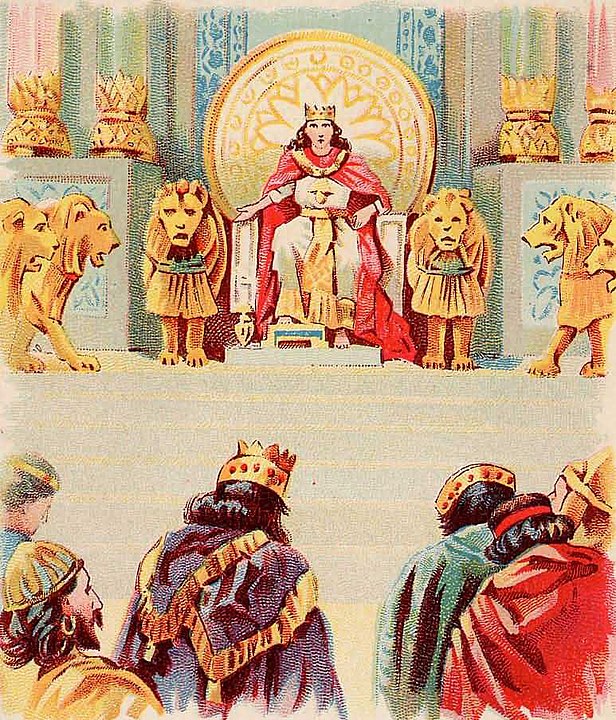
The only thing more proverbial than Solomon’s wisdom is his wealth. After subduing most of Israel’s neighbors, a fixed amount of yearly tribute was imposed upon them. This included both local goods and coins. With the impressive wealth the king amassed, he had a magnificent throne built for himself, housed in his Lebanon Forest Palace.
It had six steps, each with a sculpture of two different animals, one on each side. It was made from the best materials, namely elephant ivory coated in gold. After the fall and destruction of the Temple of Jerusalem, Solomon’s throne was captured by the Babylonians, only to be taken to Shushan later, after the Persian conquest.
The Kingdom Splits
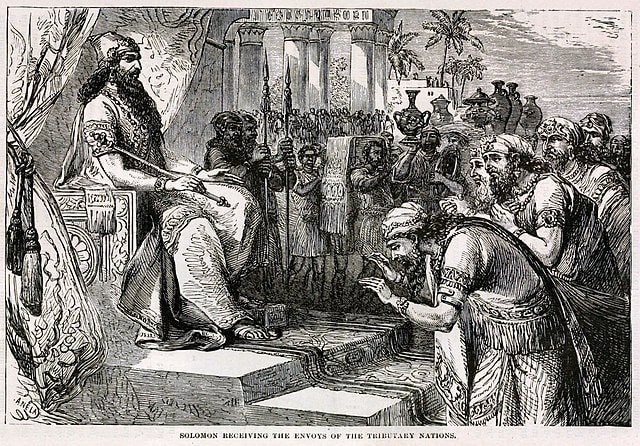
After many years of rule, and many fallings out with his God, Solomon passed away and was buried together with King David in the City of David. His son Rehoboam ascended the throne but did not rule for long.
Many of the Israelite tribes refused to accept Rehoboam’s authority, opting instead for splitting the land of Israel into two kingdoms, one to the north, which continued to be called Israel, and Judah to the south.
Wrapping Up
King Solomon’s story is a classic tale of a man ascending to the very top, only to fall from grace owing to his own sins. He was punished with the loss of everything dear to him, the United Kingdom of Israel, his wealth, and the Temple he had built. Israel would go on to become one of the most important nations in the world, but only after they made amends with their God.






